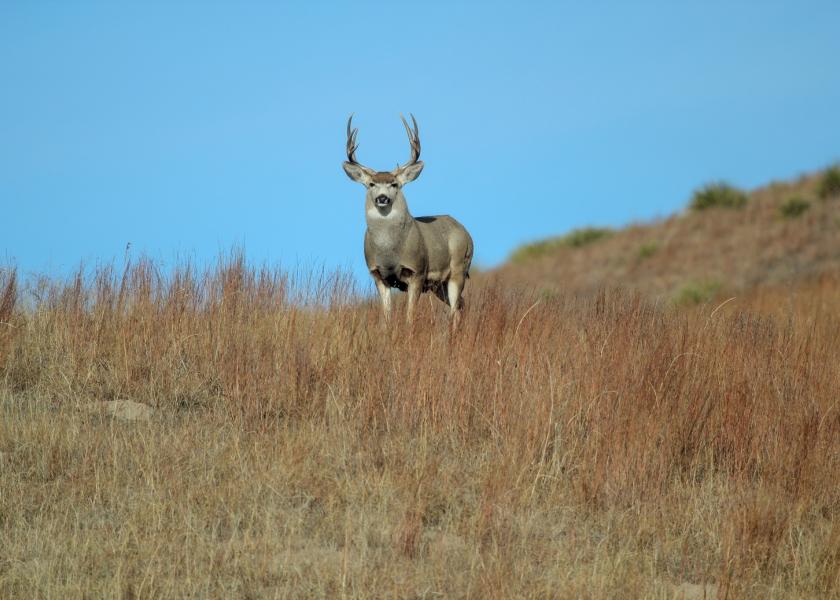Have You Considered Hunting Leases as an Added Enterprise?

Landowners seeking additional income options for their operation might consider leasing out their land for wildlife activities. The potential income can be considerable. Leases could be for hunting, fishing or birding.
Written hunting leases are the key to how your enterprise will be ran and how profitable it may be. A hunting lease is an agreement between the landowner (lessor) and hunters (lessees) that grants the hunter access rights for hunting game animals (and other specified activities) on your property for a specified time period. Hunters usually pay an agreed-upon dollar amount per acre or per hunter.
Leases can fall into two basic categories:
- short-term (for a particular season, deer, turkey, pheasant, quail, trapping)
- long-term (one year or more for one or more species).
The type of lease you offer depends upon the type of wildlife you have on your land, how hunting may affect the daily operation of your farm or ranch and what services you are offering the renter.
Things you should consider when adding hunting to your farming or ranching enterprise include:
● Are you willing to let more people on your operation?
● Are you willing to manage for wildlife as part of your operation?
● What are your long-term objectives and sustainability goals for your natural resource base?
● Are you willing to find the resources necessary to get the enterprise up and running?
● Is the leasing program compatible with your other land management objectives?
Structuring Hunting Lease Price
● Breakeven (including labor costs) + 10% - The lease price is based on management and cost associated with the lease operation plus 10% to cover unforeseen costs and the need for the lease to cover operational costs and land taxes.
● Habitat Valuation - The lease price is determined from a subjective rating of the quality and quantity of wildlife habitat available. For example, if the wildlife and population have been managed to provide high populations of wildlife and better than average-hunting opportunities, the value of the lease may be higher, or if the lessee wants to limit or keep out other hunters that the property could reasonably sustain, they may have to pay a premium price for that.
● Baseline plus Value-added - Charge a base price per acre plus charges on improvements made, amenities or services provided.
● Competitive Pricing - Base the lease price on the going rate of other leases in the area or lease prices charged elsewhere for similar access, services, and amenities provided.
● Sealed Bid - Similar to timber sales in that you develop a description of the hunting lease, what it offers, and a request for sealed bids. This can be done via advertising or by directly contacting interested individuals or sportsmen groups.
Preparing a hunting lease is not a do-it-yourself job. A well-drafted hunting lease limits your liability exposure should hunting accidents occur. A poorly drafted lease leaves you open to personal injury liability. Visit with your insurance professional and attorney before deciding whether to engage in any type of commercial hunting operation.
Regarding rented land, the tenant should seek the landlord’s permission before leasing the hunting rights to the leased land. Hunting on leased land exposes the landowner to some potential liability, even if the tenant is doing the leasing. So, landlords should consult with their attorney and insurance advisor if the tenant approaches the landlord regarding a hunting lease enterprise. In discussing these issues with the landlord, the tenant should be receptive to the landlord's wishes. Common sense tells us that if the tenant's actions go against the landlord's wishes, the tenant is not likely to have the lease renewed.







